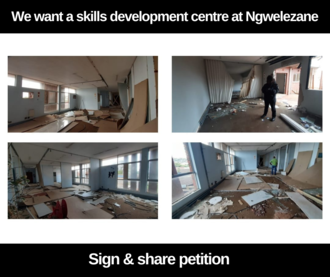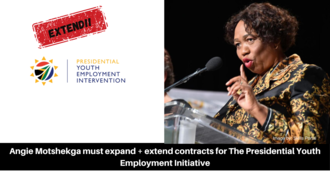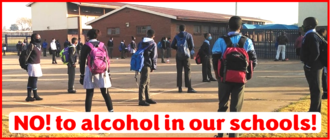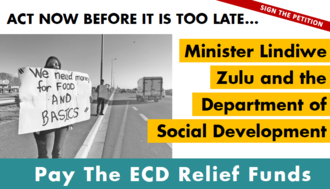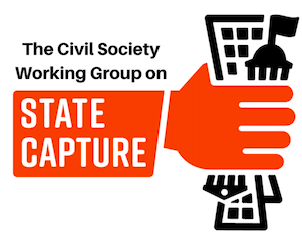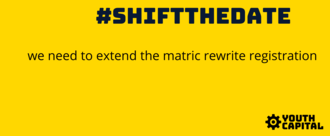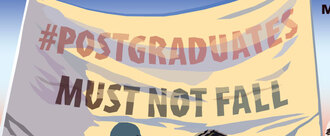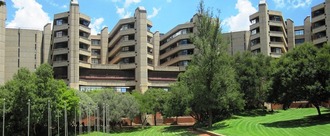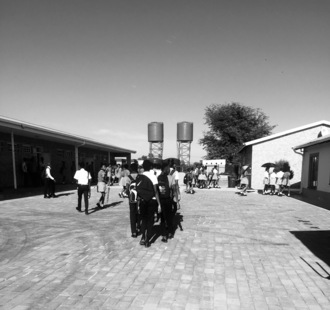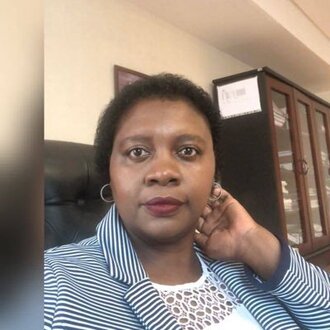- Featured
- Clean air
- Climate justice
- Consumer Rights
- Corporate Accountability
- Data access
- Early Childhood Development
- Economic fairness
- Education
- Electoral fairness
- Environmental justice
- Food justice
- Gender based violence
- Grants/social assistance
- Health
- Housing and infrastructure
- Industry interference
- Land Justice
- LGBTQIA+ rights
- Media/ information access
- Public transport
- Racism
- Reparations
- Safety
- Sanitation
- Service Delivery
- Sexual and Reproductive Rights
- Social justice
- Unemployment
- Womxn's rights/ gender equality
- Workers' rights
- More
-
VICTORY: Protect the SABCs independence #HandsOffSABCIf the President and other politicians respect our democracy, constitution, and independence of the public broadcaster, why support this Bill? We are currently in the lead-up to elections, and media outlets will be sharing important election updates from various political parties with us. This highlights the importance of the SABC as a national broadcaster. With all these 2024 election activities set to happen, the new SABC Bill that is currently before the PPCC is being rushed to be passed into law, raising concerns. Why the rush? If the Bill is passed in its current state, the Minister will have powers to influence the news and content the SABC covers, similar to the Hlaudi era. During the Hlaudi era, we saw how the SABC news was captured. The firing of journalists, the meddling of SABC operations, and widespread censorship all affected the Public Broadcaster, causing us to lose trust in it. We, as the SOS Coalition, were at the forefront of fighting to protect the independence and integrity of the SABC then, as we are now. To opt-in to receiving more campaign information from SOS, click on this link: https://forms.gle/s775kMfwKj7epE5J9 The Bill should help with the ongoing challenges at the SABC, grant the SABC greater independence from political interference, bolster its ability to hold the government accountable and introduce a sustainable funding model. However, it has clauses which do the opposite. Given this and the rush to have the Bill passed, concerns regarding the exploitation of the public broadcaster to favour certain political parties over others in the lead-up to the elections are growing. This is why we need your help to protect the SABC from politicians with ulterior motives. We are calling for #HandsOffSABC. The public broadcaster needs to remain independent and impartial in its election’s coverage. The Bill threatens this independence and is, therefore, a threat to our democracy. To opt-in to receiving more campaign information from SOS, click on this link: https://forms.gle/s775kMfwKj7epE5J9895 of 1,000 SignaturesCreated by SOS Support Public Broadcasting Coalition

-
Tell CUT Management to allow all eligible students to graduate.Over 500 students of the Central University of Technology who are due for graduation in the 2023 Spring Graduation Ceremony won’t be graduating. On the 10th of August 2023, the institution released a graduation list that has only 29 students, leaving over 500 other students behind. The university claims that these students were excluded from the list due to them not submitting certified copies of their identity documents and matric certificates. The university usually publishes a preliminary list that informs with outstanding documents to upload them, well this time it wasn’t done. The very same institution that was quiet about the graduation until 10 August, is not willing to update the list or even guide its students on what to do. It is surprising that documents like IDs and Matric certificates are among the outstanding documents at final year, whereas they are a requirement when applying to the institution. It matters not to the institution that the excluded students, who are the majority by the way; worked hard to get to this moment. These are students whose families are eagerly waiting for their qualifications to better their livelihoods. This act by the Central University of Technology doesn’t favour a poor black young person whose only hope at a better life is their qualification. On the same day, the graduation date was published. Majority of the institution’s students are from low-income communities and studied using NSFAS funding, the 1st of September 2023 is a ridiculous date. How are black students from poor families expected to prepare for graduations within 21 days? Instead of celebrating this well deserved moment, students that are eligible for graduation are in distress due to the institution’s incompetence and financial constraints that come with the graduation ceremony. A number of students have taken to the university’s student-created Facebook group to voice their dissatisfaction about this. Some say they won’t be able to attend the ceremony because they won’t be able to afford the graduation regalia at such a short notice, most want to know what is going to happen with them because they are not on the graduation list, students of the Welkom campus are complaining about the distance and costs involved in getting to the venue. Who is this graduation actually for if it is inconvenient for graduating students to attend? As a student of the institution affected by this, I’m convinced that the university does not care about its students and alumni. This is a call to all CUT registered students to disrupt this ceremony and the students who are on the list to boycott this graduation. No student should be left behind. If they can do it to these students, they can do it to you too. Sign this petition and give a black student from a low-income community a chance to attend their graduation ceremony. References [1] https://www.cut.ac.za/events/cut-spring-graduation-ceremony-2023 [2] https://www.cut.ac.za/graduate-list [3] https://southafricaportal.com/cut-graduation-ceremony/ [4] https://www.facebook.com/groups/28278289488/631 of 800 SignaturesCreated by Minothando Hlanganyana
-
We want a skills development center at NgwelezaneConverting IThala Building into a skills development institution will not only fix the issue of the abandoned building but it will empower the youth with various skills that will equip them for entrepreneurship or job market. Revamping and repurposing of the building will be executed by a team of students as part of their Work Integrated Learning and Leanership programme which will be mainly funded by various SETA’s, thus cutting down the labour costs significantly.249 of 300 SignaturesCreated by Mpendulo Mbulawa
-
Angie Motshekga must expand + extend contracts for The Presidential Youth Employment InitiativeThis contract extension will help thousands of youth and their families struggling as it is to make ends meet. Some employees have started going to school and pursuing Education due to the opportunity that was given by the Basic Education programme. Some families depend on us, and some of us have children. This programme has made a massive difference in our lives. Please extend our contracts Mama Angie. Youth unemployment rate in South Africa has increased to 64.4% in the second quarter of 2021 from 63.3% in the first quarter of 2021 [1]. [1] South Africa Youth Unemployment Rate: https://tradingeconomics.com/south-africa/youth-unemployment-rate40 of 100 SignaturesCreated by Ntuthuko Msimango
-
Minister Motshekga, keep South African schools as alcohol-free zones!!This is an issue that affects everyone in our society - learners, educators, school admin staff, and anyone who has, or will have, a child in the school system. There is a saying that 'it takes a village to raise a child'. Well, it takes a caring society to protect its children from exposure to the risk of harm. Alcohol use is already a major problem in our country. Schools in some communities already face the challenge of having large numbers of liquor outlets around them and very close to them. Some already have problems with alcohol being used on their premises. Making it possible for schools to have liquor for the purpose of fund-raising simply increases the risks for all of those at schools - learners, educators, admin staff, and even family members who interact with the school. If schools have a problem raising funds, government and society must work with them to address it in other ways - allowing schools to raise money through liquor is not the answer. We should be better than that as a society, as South Africans. We call on you to join us in urging the government to scrap the sections in the BELA Bill which will allow liquor on school premises and at school events. Support the call for a complete ban on liquor on school premises (except for personal use by staff who live on school property). Demand better funding models for our schools so that all children have access to quality education in a safe and protected environment. Fly a blue ribbon at your school in support of the campaign; wear blue ribbons as a group as you participate in school activities. Write to the Minister at [email protected] to tell her what you think of the alcohol clauses in the BELA Bill. Write to the Portfolio Committee in Parliament by 15 June to register your opposition to the alcohol clauses in the Bill - Mr Llewellyn Brown, the Committee Secretary via email: [email protected] or online at https://forms.gle/MoC6AdbdQyYPk3Y49 or via WhatsApp: +27 60 550 9848. Mr Llewellyn Brown can be reached on 083 709 8450 for enquiries. Download the BELA Bill from https://www.parliament.gov.za/storage/app/media/Bills/2022/B2_2022_Basic_Education_Laws_Amendment_Bill/B2_2022_Basic_Education_Laws_Amendment_Bill.pdf Together we can win this one!6,191 of 7,000 SignaturesCreated by Southern African Alcohol Policy Alliance in SA (SAAPA SA)

-
Pay The ECD Relief Funds Now!The delays in payment have resulted in hundreds of ECD centres buckling under the strain of Covid-19 and closing down as they cannot afford rent, electricity, nutrition for the children in their care, or staff salaries. Many staff members have had little to no income for almost two years, since the initial nation-wide lockdown in March 2020, and are struggling to put food on their tables and pay for basic needs – they truly require emergency relief funding.1,654 of 2,000 SignaturesCreated by Michaela Ashley-Cooper
-
#ThePeopleSay #WakeUpSA: Raising our voices against state capture and corruptionWe have elected leaders and bestowed on them the responsibility to govern, to enable us to achieve a better life for all – not themselves. We, as people of South Africa, have a right to know in whose interests’ decisions – supposedly in "our” name – were and continue to be made. The culture of secrecy and impunity must come to an end if our democracy is to thrive. Transparency and accountability are non-negotiable, as too are the requirements for transformative actions to address the injustices that remain embedded in our social, economic and political systems. Our constitution is revolutionary in its design, but the values and vision that it prescribes can only materialise if embraced by the state through which it is enacted. As people of this country, we all support the value and vision in the Constitution which protects the rights of the people in our country, it is the bedrock of our democracy and foundation of the rule of law. We, the undersigned, support/endorse this open letter to raise our voices in solidarity against state capture and impunity, and to say now is the time for us to be heard. The realities of the current moment cannot be met with silence and complacency. #ThePeopleSay #Wake-Up SA! Civil Society endorsements: Alternative Information and Development Centre (AIDC) Centre for Applied Legal Studies (CALS) Council for the Advancement of the South African Constitution (CASAC) Corruption Watch (CW) Dullah Omar Institute (DOI) Equal Education (EE) Freedom Under Law (FUL) Legal Resources Centre (LRC) My Vote Counts (MVC) Open Secrets Organisation for Undoing Tax Abuse (OUTA) Public Affairs Research Institute (PARI) Section27 (S27) Southern African Faith Communities’ Environment Institute (SAFCEI) Right2Know (R2K)78 of 100 SignaturesCreated by Civil Society Working Group on State Capture (CSWG)

-
#ShiftTheDate for the matric rewrite registrationBecause of the disruptions to the 2020 school year, these Second Chance opportunities are going to be more important than ever to help young people to achieve the very valuable matric qualification. Learners in the Class of 2020 must be given every chance of successfully registering for these opportunities. It is unacceptable that the registration date for Second Chance mid-year examinations has not been changed to accommodate the later than usual release of the matric results. The Class of 2020 faced an immensely challenging school year. Let us not further disadvantage them. We, therefore, call on the Department of Basic Education to extend the registration deadline for the Second Chance May/June 2021 examinations. This request has precedent. In 2019, when the Class of 2018 received their matric results on 4 January, the Department of Basic Education extended the registration deadline – from 31 January to 18 February [3] – for those who wanted a second chance to write matric exams. We call on the department to do so again in 2021. [1] https://www.education.gov.za/Curriculum/SeniorCertificate/SCRegistration.aspx [2] https://www.eservices.gov.za/ [3]https://www.education.gov.za/Newsroom/MediaReleases/tabid/347/ctl/Details/mid/8128/ItemID/5986/Default.aspx271 of 300 SignaturesCreated by Youth Capital
-
REVIEW DISCRIMINATORY NRF Postgraduate Scholarship and Funding Framework 2021For an example chapter 9 of the NDP articulates our weakness by global standards in relation to national research and innovation systems, revealing amongst other things that there has been little increase to public research workforce, PhDs and research outputs. The honourable Minister will be acutely aware that the country’s global competitiveness requires drastic improvement and presently the distribution of research capacity in higher education institutions of learning is still skewed towards white institutions. We recognize that the racial history affected most facets of life, including but not limited to the labour market and education system. As result, the democratic government had a responsibility to reconcile the racial divide in relation to education and training system and labour market. It had to usher a wide scale of reforms of public policies meant to redress the racial past which characterised what scholars called ‘low skills regime’. Thus, we believe that the age restriction imposed on the NRF will have far reaching for South Africans especially the black who aspire to study up to doctoral level.5 of 100 SignaturesCreated by South African Youth Council
-
UNIVERSITIES TO ISSUE OWING STUDENTS GRADUATE CERTIFICATES1. This will help many students enter the job market. 2. Universities' financial sustainability will improve as more graduates get jobs and start paying-off their debts. 3. This will also reduce the social burden on the government of giving out grants as more people are employed. 4. This will contribute to the NDP and the GDP of South Africa.8 of 100 SignaturesCreated by Nat Turner
-
Call Gauteng MEC of Education to place social workers in rural schools in HammanskraalThe schools located in low-income areas face the challenge of, Vulnerable family structure( skipped generation households and child headed households). This has a negative impact on how the students perform at school and survival is usually prioritized above school work [3]. Therefore there is a need for a social worker to identify students from these households and offer them support so that they can get the best out of their education [2]. Since social workers are social advocates they can connect students/parents with the right stakeholders. They can workshop around issues that make it difficult for students to participate fully in the classroom [1]. They can make the school environment more conducive to learning. They can hold meetings with parents and community members for the overall benefit of the student. Call to action: Sign this campaign now to ensure that the MEC of Education, places social workers at rural schools in hammanskraal. Our main objective is for students to thrive and succeed, but they are weighed down and overburdened by the family structures they find themselves in;causing them to not perform at their best. By signing this petition you will help us get the MEC to place a standing social worker in rural schools in Hammanskraal. The social worker will act as a facilitator between the community and the school, a social advocate to ensure that students get the best out of their education and a support system for teachers,providing them with tools needed to support at risk students. Together we can guarantee that our students maximize their opportunities but we need to remove barriers to their education. Sign now and make a difference. References [1] https://socialworklicensure.org/articles/become-a-school-social-worker/ [2] https://msw.usc.edu/mswusc-blog/what-is-a-school-social-worker/ [3] https://borgenproject.org/what-is-the-relationship-between-poverty-and-learning/ Helpful Statistics and Readings https://mobile.twitter.com/StatsSA/status/1133299234579648513?ref_src=twsrc%5Etfw%7Ctwcamp%5Etweetembed&ref_url=https%3A%2F%2Fd-96 https://journals.co.za/content/journal/10520/EJC-1399f14fb9141 of 200 SignaturesCreated by Malebo Masemene
-
Tell Thembeni Mhlongo to build a public creche in Windsor WestIt is unrealistic to expect that community members in poor and low income areas will be able to provide suitable crèche’s in line with the requirements of the Department. The particular requirements in infrastructure, safety regulations, health standards, teacher qualifications, and high standards of education and as well as capacitated organisations are an unrealistic expectation for these communities. This was echoed by the words of crèche principal, Georginah Hloka in a meeting held on the 29th of October 2019 with the Department of Social Development, Department of Health and the Department of Education in Tembisa Township [1]. How can crèche owners then provide adequate toilets, proper infrastructure, provisions for disabled children, nutritious food, qualified teachers, physical safety features and adequate space for children if community members cannot even afford to pay a R1000?This then means that the whole idea of private crèche’s can never really work in poor and low income communities [2]. Research shows that the improvement of pre-school learning in the country came when grade R learners were incorporated into the public school system and became housed in primary schools [3]. Grade R is however only for five year olds and six year olds. This means that, for poorer communities, provision of pre-school education by the public government is better than that of private providers. The same is not true for affluent neighbourhoods however. This is why we are calling for the Gauteng’s Head of the department of social development to rather build public crèche’s as private crèche’s are not sustainable in poorer areas. What is moreover disturbing about the poor quality of pre-school education for black children is that the children who of the race group that needs the most support in order to reduce rates of inequality in the future as they are shaped by race and gender, are the children whose development is being stunted all the more. Research shows that poor nutrition, poor learning environment and low standards of teaching are the main cause of why children from poor backgrounds generally perform worse than children from upper and middle classes[4]. The DSD MEC needs to stop this plight and push for decision making to rather build public crèche’s as opposed to trying to shift the responsibility of educating the poor to community members who are structurally unable to play this role. [1] Township crèches must now register, says government: https://www.sowetanlive.co.za/news/south-africa/2019-10-29-township-crches-must-now-register-says-government/ [2] Raising South Africa: informal crèches are desperate for aid: https://www.groundup.org.za/article/raising-south-africa-informal-creches-are-desperate-aid/ [3] impact of the introduction of grade R on learning outcomes: http://resep.sun.ac.za/wp-content/uploads/2014/06/Grade-R-Evaluation-1-3-25-Final-Unpublished-Report-13-06-17.pdf [4] Challenges of the Early Development Sector in South Africa by Michaela Ashley Cooper, Eric Atmore and Lauren Van Niekerk 2012. The Journal of Early Childhood Development Journal. The University of Johannesburg.164 of 200 SignaturesCreated by Zintle Tyuku
.png)


